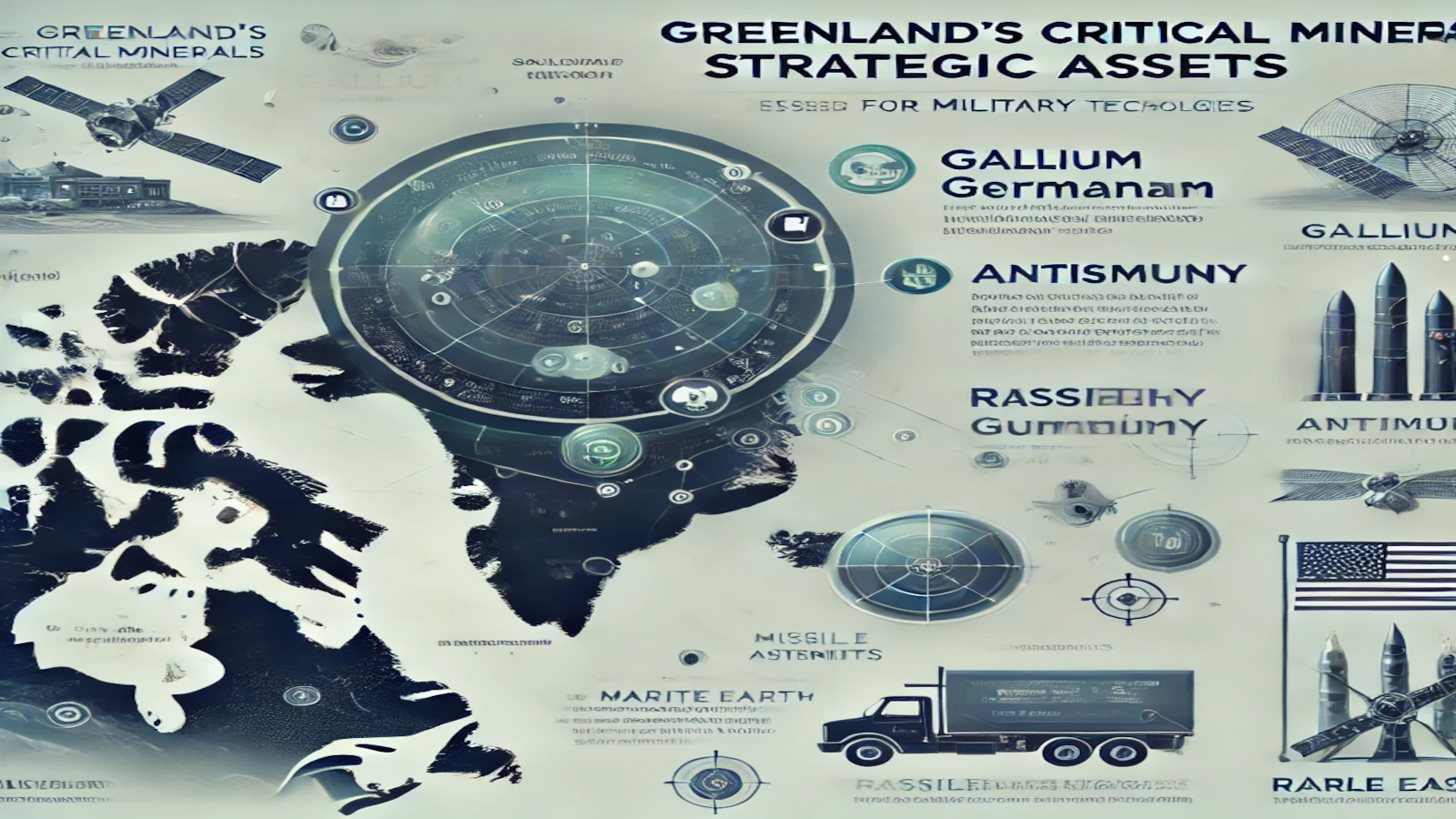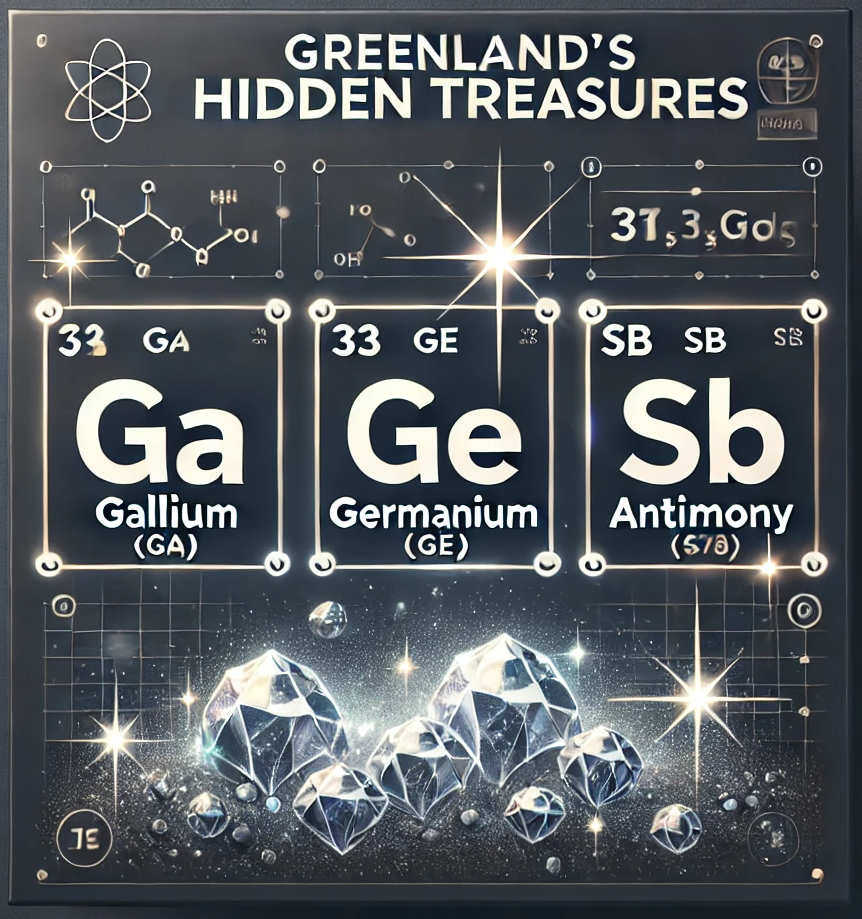 In 2019, when President Trump floated the idea of purchasing Greenland, many thought it was a joke. However, beneath the icy surface of the world's largest island lies a treasure trove of critical minerals essential for national security and advanced military technologies, including gallium, germanium, antimony, and rare earth elements (REEs). These minerals are crucial for producing radar systems, satellites, and high-tech weaponry. Did Trump see something others missed?
In 2019, when President Trump floated the idea of purchasing Greenland, many thought it was a joke. However, beneath the icy surface of the world's largest island lies a treasure trove of critical minerals essential for national security and advanced military technologies, including gallium, germanium, antimony, and rare earth elements (REEs). These minerals are crucial for producing radar systems, satellites, and high-tech weaponry. Did Trump see something others missed?
Greenland is rich in several critical minerals. Gallium is used in advanced radar systems, satellite communications, and missile defense technologies. It plays a critical role in gallium nitride (GaN) semiconductors, essential for electronic warfare systems and next-gen weapons. Germanium is used in infrared optics, night-vision systems, fiber-optic communications, and solar cells for satellites. Greenland’s significant zinc and lead deposits often contain germanium as a byproduct. Antimony is used to harden ammunition and explosives, as well as in flame retardants for military uniforms. Rare earth elements (REEs) are the biggest prize, essential for missile guidance systems, jet engines, and cybersecurity equipment. China dominates global REE production, so securing Greenland’s resources would reduce U.S. dependence on China.
 The Department of Defense (DOD) has repeatedly warned about China's control of critical minerals. Recent Chinese export bans highlight the urgency of securing alternative sources. By partnering with Greenland, the U.S. aims to reduce reliance on adversarial nations. According to a recent article by the U.S. Department of Defense, disruptions to the supply chain caused by China’s export bans on gallium and germanium demonstrate the strategic importance of securing critical minerals. The article emphasizes the need for domestic mining and processing and highlights ongoing efforts by the DOD to build resilient supply chains for these materials. (Source: Defense.gov)
The Department of Defense (DOD) has repeatedly warned about China's control of critical minerals. Recent Chinese export bans highlight the urgency of securing alternative sources. By partnering with Greenland, the U.S. aims to reduce reliance on adversarial nations. According to a recent article by the U.S. Department of Defense, disruptions to the supply chain caused by China’s export bans on gallium and germanium demonstrate the strategic importance of securing critical minerals. The article emphasizes the need for domestic mining and processing and highlights ongoing efforts by the DOD to build resilient supply chains for these materials. (Source: Defense.gov)
Beyond minerals, Greenland holds strategic military value due to its Arctic location. The U.S. operates Thule Air Base, essential for missile defense, radar systems, and space surveillance. As Arctic ice melts, new shipping routes are opening, making Greenland even more valuable for global trade and defense.
While purchasing Greenland might have sounded unusual, the U.S. has made strategic land acquisitions before, such as Alaska and the U.S. Virgin Islands. Greenland’s mineral wealth and strategic location make it highly valuable for national security and economic interests. After Denmark rejected Trump’s proposal, the U.S. increased diplomatic ties with Greenland. The push to secure critical minerals is about more than economics—it’s about national security. The minerals beneath Greenland’s ice are essential for next-gen military technologies. Was Trump right to want Greenland? Perhaps the better question is: Why hasn’t the U.S. already secured it?
